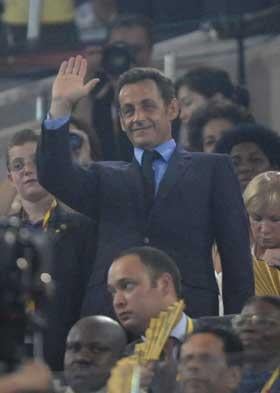
Since coming into office, President Sarkozy has seemed particularly preoccupied with how he is portrayed to the outside world, even to the extent of wearing platforms, apparently to appear taller. But recent events in France suggest that his interest in the media goes much further than worries about his image.
He announced in January that he wanted an end to advertising on state broadcaster FTV in favour of a more BBC-style management and brought together a commission to look at how it could be managed and funded. He even brought in an ex-BBC executive, David Levy, to sit on the board.
Since then, Sarkozy has suggested that the director of FTV should be a government appointment – leading to concerns over the broadcasters’ independence.
Levy told Press Gazette: ‘It is true that the BBC is not funded by advertising, but the President doesn’t seem to realise that independence from the state and direct connection to its users is the BBC’s success – notably through substantial licence fee funding. And yet all of these are compromised by the President’s plans.”
Levy added: ‘The anachronistic nature [of Sarkozy’s plans] would be comical if the issue of independence of information was not so serious for democracy.”
There have also been allegations that pressure from Sarkozy has prompted the sackings of two popular figures in the French media. It was announced in June that Sarkozy’s billionaire friend, Martin Bouygues, owner of the TF1 channel, had fired the popular French presenter, Patrick Poivre d’Arvor in favour of Laurence Ferrari, who is reputed to be a friend of Sarkozy.
Then, at the end of July, French cartoonist Maurice Sinet, 79, was fired after refusing to apologise for a column and cartoon featuring Sarkozy’s son, Jean, and his Jewish girlfriend. Siné, as he is known in print, said in his regular column in weekly mag Charlie Hebdo, that Jean Sarkozy ‘would go far in life’after converting to Judaism and marrying his girlfriend.
According to one report, even the editor and senior news editor at Le Monde couldn’t agree on whether it crossed the line, but there are suspicions Sarkozy is at the root of ‘l’affaire Siné”.
Editor of Charlie Hebdo, Phillipe Val, who was responsible for firing Siné, received a letter from President Sarkozy in response to the controversial cartoon. And according to The New York Times, Val said after sacking Siné that ‘a close collaborator of Jean Sarkozy contacted me to tell me that the families of Jean Sarkozy and his fiancée had been outraged and were contemplating a lawsuit.”
Val attracted criticism in February 2006 with his decision to publish the controversial Danish cartoons that were allegedly anti-Muslim.
At the time, Val received a letter from President Sarkozy, but this time the message was one of endorsement and so the editor stood by the publication.
The same letter was used as evidence in a trial about the cartoons and prompted the official French Council of Muslim Faith (CFCM) to voice its anger that the government had got involved.
Email pged@pressgazette.co.uk to point out mistakes, provide story tips or send in a letter for publication on our "Letters Page" blog
